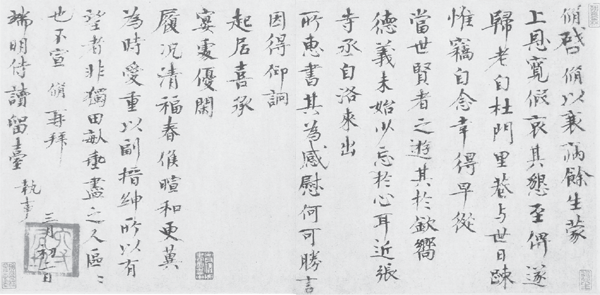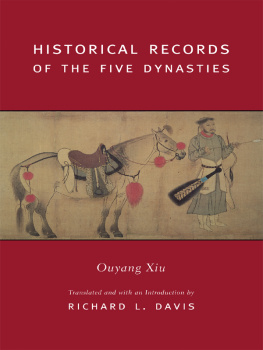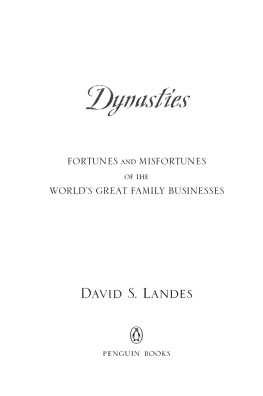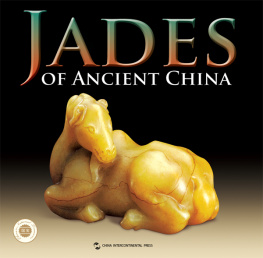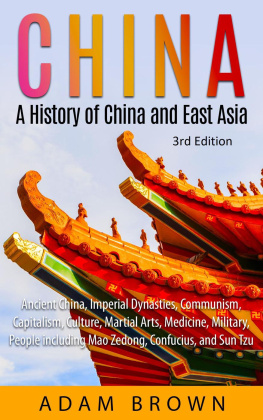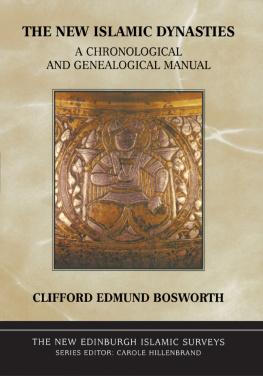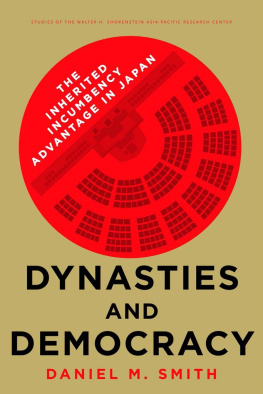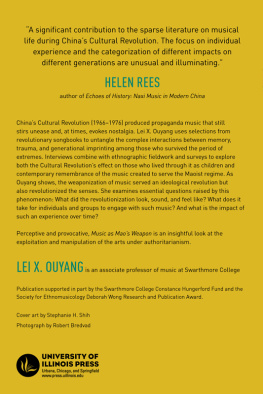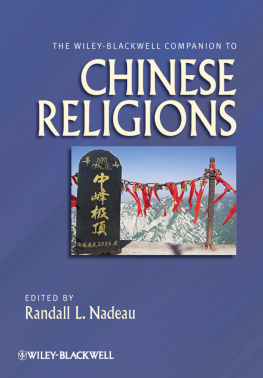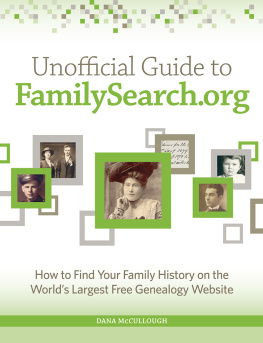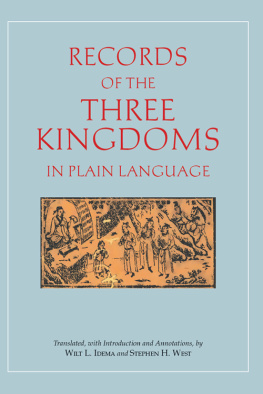HISTORICAL RECORDS
OF THE FIVE DYNASTIES
Courtesy of the National Palace Museum, Taipei.
HISTORICAL RECORDS
OF THE FIVE DYNASTIES
Ouyang Xiu
Translated, with an Introduction by
RICHARD L. DAVIS
COLUMBIA UNIVERSITY PRESS
NEW YORK
Columbia University Press wishes to express its appreciation for assistance given by Brown University and the Chiang Ching-kuo Foundation for International Scholarly Exchange in the publication of this book
Columbia University Press
Publishers Since 1893
New York, Chichester, West Sussex
cup.columbia.edu
Copyright 2004 Columbia University Press
All rights Reserved
E-ISBN 978-0-231-50228-3
Library of Congress Cataloging-in-Publication Data
Ouyang, Xiu, 10071072.
[Wu dai shi ji. English]
Historical records of the five dynasties / Ouyang Xiu, translated with an introduction by Richard L. Davis.
p. cm.
Includes bibliographical references and index.
ISBN 0231128266
1. ChinaHistoryFive dynasties and the Ten kingdoms, 907979.
I. Davis, Richard L. II. Title. III. Series
DS749.5.O9313 2004
951.018dc21 2003055286
A Columbia University Press E-book.
CUP would be pleased to hear about your reading experience with this e-book at .
FOR TZUNG-CHUN
CONTENTS
) indicates translation of only select biographies for the cluster of chapters, although each biography is translated in full. Omitted altogether were the following: Consistent Conduct (Yixing, chapter 34), Treatise on Astronomy (Sitian kao, chapters 5859), Treatise on Administrative Geography (Zhifang kao, chapter 60), Timeline for the Hereditary Houses of the Ten Kingdoms (Shiguo shijia nianpu, chapter 71), and Appendixes on the Four Barbarians (Siyi fulu, chapters 7274).
The Historical Records of the Five Dynasties has fascinated me for nearly two decades as both historical craft and social commentary, although producing a translation of the current scope was far from my initial intent. In 1988 I drafted part of a monograph on eleventh-century historiography that focused on three works: the two dynastic histories associated with Ouyang Xiu, the New History of the Tang and Historical Records of the Five Dynasties, and Sima Guangs Comprehensive Mirror for the Advancement of Governance. After some drafting, however, I found the three works and the two authors difficult to compare, and many of my initial assumptions about them were difficult to justify as well. I also became convinced of the need for a corpus of Ouyang Xius historical writings in English translation. The more immersed in the text I became, the more convinced I was that this particular work, like few histories from the period, truly deserved to be brought to a wider audience. No historical text from Chinas middle period has ever been translated, except in fragments. Moreover, author Ouyang Xius standing as a towering intellect, his classical and literary works even more celebrated than his histories, makes for an appeal across modern disciplines. As a historian of Song-dynasty political culture and historical method, my preeminent interest in the text is historical; the tools and sensitivities that I bring to the translation are historical as well. Readers more philologically or literarily inclined will doubtless find a disciplinary bias in my interpretations of events and terms, but the breadth of coverage should compensate for deficiencies in expression.
Roughly two-thirds of the Chinese original has been rendered in English. Sections critical to understanding the politics and personality of the time appear in full: Basic Annals () also appear in their entirety, indispensable as they are to appreciating the Confucian moral agenda that permeates the work and inspires its rich commentary. A major pruning occurs with the other biographical clusters. My selections were informed by the need for the most important figures to be represented; otherwise, biographies of greater length and detail were given priority over less developed stories, biographies with important commentary over those without. I wanted temporal and topical balance as well, so there are disproportionately more biographies for poorly represented dynasties such as Jin, Han, and Zhou, and fewer for the Later Tang, the best-documented period in the Historical Records. Biographies chosen for inclusion are translated in full without abbreviation or deletion, thereby better representing the narrative strengths of the original, although fuller coverage made it necessary to limit the number of biographies. Left untranslated altogether are two treatises on astronomy and administrative geography and the concluding chapters on the Four Barbarians, which do not lend themselves to translation. Ouyang Xius strongest chapters are the biographies, where he weaves literary sources into historical documents and provides the depth of personality and perspective wholly absent in the original official history for the period. The biographies allowed the author to play a role particularly suited to him, that of the storyteller, with every story conveying some higher truth or fitting some broader agenda.
My appreciation of the Chinese text as a masterpiece of the classical style, at once direct and nuanced, was greatly assisted by the privilege of organizing classes around it during a teaching stint in Taiwan from 1996 to 1998. I am grateful to undergraduates at Tung-wu (Soochow) University in Taipei and graduate students at Chung-cheng University in Chia-yi for indulging my interests in the text and providing a modern perspective on it. Administrators at the two universities also deserve credit for their faith in this foreigners potential to teach Chinese history to their students. I am at once grateful and humbled. Conference organizers and university lectureships in Taiwan, mainland China, and the United States provided invaluable venues for discussing the work with fellow historians. My friend Liu Xiao, a Yuan-dynasty historian at the Academy of Social Sciences in Beijing, deserves special mention for a methodical reading of the entire translation, his scrupulous eye sparing me numerous errors. The text further benefited from readings from colleagues at Brown such as David Lattimore, plus undergraduate and graduate students on whom I tested the manuscript, especially Luc Nguyen. A colleague in the Korean language, Angela Jong-eun Lee-Smith, assisted with the transliteration of Korean names in the Basic Annals. Maps were produced in Taiwan with assistance from a friend of long standing, Chiang Jung-yuan. Another debt is owed three readers for Columbia University Press, whose critical yet measured input proved invaluable and whose suggestions for change have been largely adopted. I thank the executive editor there, Jennifer Crewe, for readily recognizing the importance of the text and the need to make it accessible to scholars and students alike. Manuscript editor Gregory McNamee labored hard and well on the final product, as did Cheng-hua Fang with final corrections.
My understanding of the late Tang and the Five Dynasties, several centuries before my earlier specialty, has benefited immensely from the expertise of Huang Ching-lien, at the Academia Sinicas Institute of History and Philology, an old Princeton friend always generous with his time. As early as 1977, the Academia Sinica was my research base in Asia, when director Ch Wan-li took me under his wing. Its doors opened once again during my sabbatical in 20002001 amid further drafting and revision. I thank the current director, fellow Song-dynasty historian Huang Kuan-chung, for the continuing hospitality and cherished friendship. A yearlong sabbatical was made possible with a research fellowship from the Chiang Ching-kuo Foundation for International Scholarly Exchange. Imperial China tends to receive low priority among grant programs at universities and private endowments, so CCK must be commended for so liberal a casting of its funding net.
